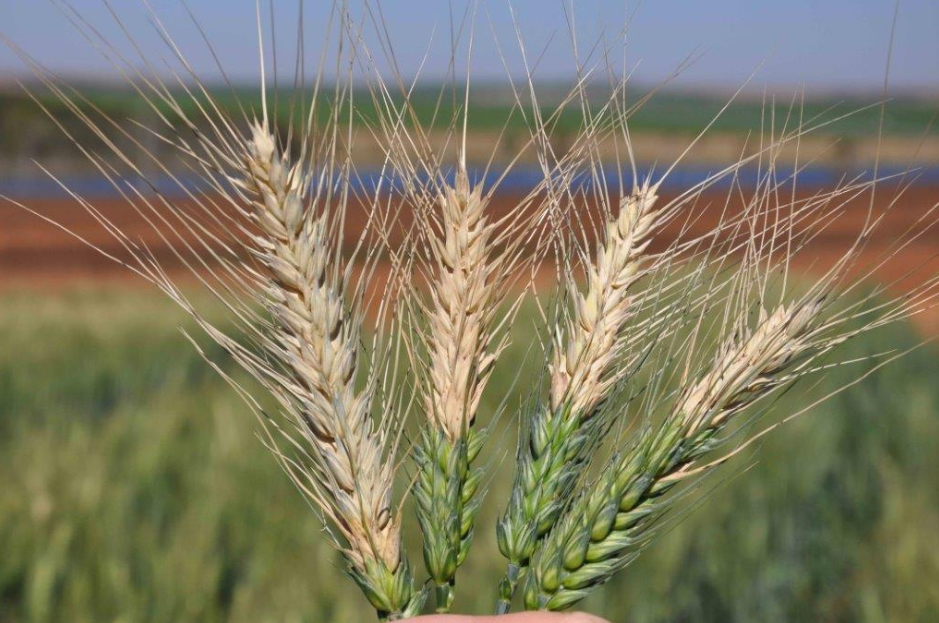Bauchi wheat farmers promise bumper harvest in 2023
Transport bottleneck responsible for inputs delay last season – Union Wheat farmers in Bauchi State have said the 2023 dry season wheat farming will record massive yield to close the gap created by foreign grains. Investigation indicated that the state recorded poor yield last season as a result of delay in inputs distribution, fuel hike […]

-
Transport bottleneck responsible for inputs delay last season – Union
Wheat farmers in Bauchi State have said the 2023 dry season wheat farming will record massive yield to close the gap created by foreign grains.
Investigation indicated that the state recorded poor yield last season as a result of delay in inputs distribution, fuel hike and lack of technical skills about wheat farming in the state.
Findings revealed that despite the challenges, thousands of prospective farmers recently registered and joined wheat farming to increase wheat production in the state, with reports that over 30,000 farmers have concluded arrangements to venture into wheat production in Bauchi.
A wheat farmer in Bauchi, Salisu Sunusi, told Daily Trust on Sunday that he benefited from the last season anchor borrower wheat scheme and has already facilitate the enrolment of three of his relatives who specialize in dry season farming of rice and other crops into wheat production, saying, “I recorded successes last season and I hope to redouble the production by acquiring additional hectares of farmland to increase the production of wheat in Bauchi.”
Sunusi explained, “Although we encountered challenges last season, especially the hike in fuel price and delay in getting inputs from the union, which led to some of our colleagues recording poor yield, we have gotten assurance from the leadership of wheat farmers association of adequate preparation and distribution of inputs in time this season.”
Another wheat farmer in Warji Local Government Area, Sani Mohammed, told Daily Trust that he had concluded arrangements, especially the choice of farmland, to increase the capacity of his production. “Last year, I planted one hectare of wheat and this year, I want to go for two or more hectares because I recorded success last season.”
Mohammed said preparations had been concluded and they’re about to commence planting. “I already have my hybrid seeds from last season’s farming and what I am waiting for is the subsidized fertilizers. I want to use this year’s inputs to expand the capacity of my farm. We hope and pray to get bumper harvest to close the gap created by lack of foreign wheat.”
When contacted, Bauchi State Coordinator of National Wheat Farmers, Processors and Marketers Association of Nigeria (NWFPMAN), Ibrahim Abubakar Sadiq, attributed last season’s challenges to logistics associated with transportation bottleneck, insisting that despite the challenges, wheat farmers recorded successes in Bauchi.
“The CBN makes arrangements for seeds to be on ground very early in their various stores across the country as well as fertilizers, but because of the quantity required in Bauchi, I doubt if all the stores in Bauchi can contain the quantity of fertilizers required. We went for 5120 hectares, and if you multiply the numbers of hectares by 10, that is the number of fertilizers needed.”
Sadiq said, “The other issue was the Urea fertilizer transported from Port Harcourt and other areas. There were problems of transportation delay in bringing these items to the farmers. I wouldn’t say it was the fault of any of our partners because it was made available by the Central Bank. Heritage Bank provided the funds for the other inputs while fertilizer and seeds were supplied by the CBN, and they were made available quite early.”
Speaking on this year’s level of preparedness, he said there was adequate arrangements to ensure that farmers get all the necessary inputs at the appropriate time.
Commenting on the wheat projects, Sadiq explained that the Central Bank of Nigeria (CBN) had done a great service to the country when it comes to agriculture because of its numerous interventions in agriculture. “We have seen how the CBN transformed rice production in Nigeria.”
He said the scheme had drastically reduced importation of rice and “we are now thinking of exporting rice. We have seen the number of mills all over the country and today, we are more or less eating Nigerian rice. This is exactly what CBN is doing in wheat farming.”
